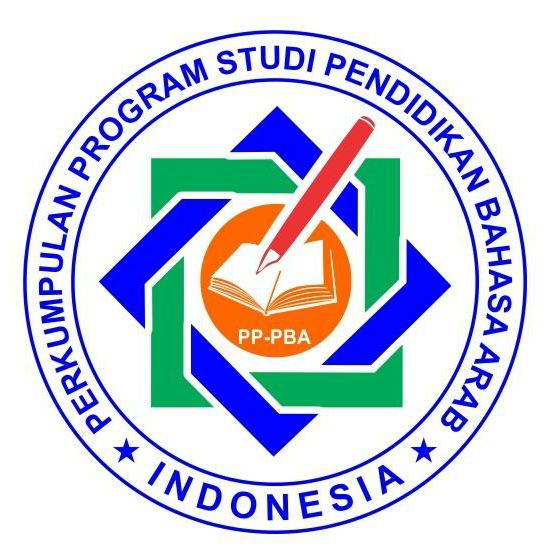Waẓīfah al-Lugah fī al-Kasyf ‘an Anmāṭ al-Ŝaqāfah fī Nījīriyā
DOI:
https://doi.org/10.37680/aphorisme.v5i2.4996Keywords:
Africa, Language and Identity, NigeriaAbstract
This research aims to describe the main role of language in revealing the cultural patterns of Nigerian-African society. This research is qualitative with a bibliographic type. As literature research, this research uses primary data related to research articles that explain the function of language in intercultural communication in Nigerian-African communities. Data sources were accessed from reputable online e-journals. Data collection techniques are implemented with documentation. Data analysis was carried out using interpretative descriptive techniques. The research results state that language and culture are two of the most important things that determine the personality of individuals and groups and contribute to directing the thinking of the Nigerian-African community, especially in the expansion of cross-cultural speech and communication on the African continent. Language in the socio-cultural context of Nigeria-Africa is one of the impacts of colonialism, which caused Nigeria to have more than 200 regional languages. The Nigerian African community continues to make preventive efforts to preserve regional languages amid continuous disruption and change.
References
Aldamen, H., & Al-Deaibes, M. (2023). Perception and production of L2 Arabic emphatic consonants: The role of communicative and traditional form-based approaches. Ampersand, 10, 100105. https://doi.org/https://doi.org/10.1016/j.amper.2022.100105
Anderson, E. (2011). Democracy, Public Policy, and Lay Assessments of Scientific Testimony. Episteme, 8(2), 144–164. https://doi.org/10.3366/epi.2011.0013
Ben-Naouar, Y. (2021). al-Ta’āysy al-Ṡaqāfī wa al-Ḥaḍārī bi al-Magrib. Aphorisme: Journal of Arabic Language, Literature, and Education, 3(1), 1–12. https://doi.org/10.37680/aphorisme.v3i1.627
Blench, R. (2021). Relating Linguistic Reconstructions of Plant Names in Berber to the Archaeobotany of North Africa. Journal of Archaeological Science: Reports, 38, 103009. https://doi.org/https://doi.org/10.1016/j.jasrep.2021.103009
Bogatyreova, M. A. (2016). Creative Capital of Foreign Language Education the Driving Force of Knowledge Society. Procedia - Social and Behavioral Sciences, 236, 235–239. https://doi.org/https://doi.org/10.1016/j.sbspro.2016.12.015
Burridge, K., & Stebbins, T. N. (2019). For the Love of Language: An Introduction to Linguistics. Cambridge University Press. https://books.google.co.id/books?id=n2_CDwAAQBAJ
Caminal, R., Cappellari, L., & Di Paolo, A. (2021). Language in Education, Language Skills and The Intergenerational Transmission of Language in a Bilingual Society. Labour Economics, 70, 101975. https://doi.org/https://doi.org/10.1016/j.labeco.2021.101975
Chaparro, S. E. (2024). Hybrid Languaging and Literacy Practices as Cross-Cultural Competence in a Spanish-English Two-Way Immersion Program. Learning, Culture and Social Interaction, 47, 100823. https://doi.org/https://doi.org/10.1016/j.lcsi.2024.100823
Chukwuma-Nwuba, E. O. (2018). The Influence of Culture on Entrepreneurial Intentions: a Nigerian University Graduates’ Perspective. Transnational Corporations Review, 10(3), 213–232. https://doi.org/https://doi.org/10.1080/19186444.2018.1507877
Dajani, B. A. S. (2015). Teaching Arabic Language: Towards a New Beginning that Stimulates Creativity. Procedia - Social and Behavioral Sciences, 192, 758–763. https://doi.org/https://doi.org/10.1016/j.sbspro.2015.06.086
Das Gupta, J. (2018). Language Conflict and National Development: Group Politics and National Language Policy in India. University of California Press. https://books.google.co.id/books?id=qbjADwAAQBAJ
Davis, L. S., & Abdurazokzoda, F. (2016). Language, Culture and Institutions: Evidence from a New Linguistic Dataset. Journal of Comparative Economics, 44(3), 541–561. https://doi.org/https://doi.org/10.1016/j.jce.2015.10.015
De Costa, P. I., Park, J., & Wee, L. (2019). Linguistic Entrepreneurship as Affective Regime: Organizations, Audit Culture, and Second/Foreign Language Education Policy. Language Policy, 18(3), 387–406. https://doi.org/10.1007/s10993-018-9492-4
De Swaan, A. (2023). The Language Predicament of South African Universities in a Global Perspective. Language & Communication, 89, 1–7. https://doi.org/https://doi.org/10.1016/j.langcom.2022.12.003
Dere, M. D., Dere, R. O., Adesina, A., & Yauri, A. R. (2023). An End-to-End Framework for Translation of American Sign Language to Low-Resource Languages in Nigeria. Scientific African, 21, e01809. https://doi.org/https://doi.org/10.1016/j.sciaf.2023.e01809
Douglas, J. (2020). Developing an English for Academic Purposes Course for L2 Graduate Students in the Sciences. Graduate Writing Across the Disciplines: Identifying, Teaching, and Supporting, 71–91. https://doi.org/10.37514/atd-b.2020.0407.2.03
Egbe, G. B. (2023). Englishization and the Language of Education in Nigeria: Literacy Issues, Challenges and Hopes (R. J. Tierney, F. Rizvi, & K. B. T.-I. E. of E. (Fourth E. Ercikan (eds.); pp. 61–68). Elsevier. https://doi.org/https://doi.org/10.1016/B978-0-12-818630-5.06070-X
Embree, L. (2013). Alfred Schutz’s Sociological Aspect of Literature: Construction and Complementary Essays. Springer Netherlands. https://books.google.co.id/books?id=1NyLBQAAQBAJ
Evans, V., & Green, M. (2018). Cognitive Linguistics: An Introduction. Routledge.
Flax, V., Fagbemi, M., Schnefke, C., Kawu, A., Edwards, S., Unangst, J., Bose, S., Sule, D. S. Y., Ridwanullah, A. O., Ben-Enukora, C. A., Adeyeye, B. K., Adesina, E., Ajakaiye, O. O. P., Adekanye, O., & Aboh, S. C. (2023). Behavior Change Communication Implemented at Scale in Nigeria Increases the Prevalence of Key Infant and Young Child Feeding Practices. Current Developments in Nutrition, 295(11), 566. https://doi.org/https://doi.org/10.1016/j.pubrev.2023.102323
Goddard, C., & Wierzbicka, A. (2015). Language and Society (J. D. B. T.-I. E. of the S. & B. S. (Second E. Wright (ed.); pp. 288–292). Elsevier. https://doi.org/https://doi.org/10.1016/B978-0-08-097086-8.53033-5
Halliday, M. A. . (1977). Language as Social Semiotics: Toward as General Sociolinguistics Theory. Ed-Ward Arnold.
Honkanen, M. (2022). “This Word No Get Concrete Meaning oo”: Pragmatic Markers in Nigerian Online Communication. Journal of Pragmatics, 202, 93–104. https://doi.org/https://doi.org/10.1016/j.pragma.2022.10.015
Isiaka, A. L. (2019). A Phono-Ethnic Story of Nigerian English: As Told by High Vowels. Ampersand, 6, 100049. https://doi.org/https://doi.org/10.1016/j.amper.2019.100049
Ivankina, L., & Anikina, E. (2015). Language Preservation as a Means of Society Evolution. Procedia - Social and Behavioral Sciences, 206, 354–358. https://doi.org/https://doi.org/10.1016/j.sbspro.2015.10.064
Kaiser, B. N., Ticao, C., Anoje, C., Boglosa, J., Gafaar, T., Minto, J., & Kohrt, B. A. (2022). Challenges in Simultaneous Validation of Mental Health Screening Tools in Multiple Languages: Adolescent Assessments in Hausa and Pidgin in Nigeria. SSM - Mental Health, 2, 100168. https://doi.org/https://doi.org/10.1016/j.ssmmh.2022.100168
Kirkpatrick, A. (2012). English as an international language in Asia: Implications for language education. In English as an international language in Asia: Implications for language education (pp. 29–44). Springer.
Lim, F. V., Toh, W., & Nguyen, T. T. H. (2022). Multimodality in the English Language Classroom: A Systematic Review of Literature. Linguistics and Education, 69, 101048. https://doi.org/https://doi.org/10.1016/j.linged.2022.101048
Mills, S. (2014). Language, culture, and politeness. In The Routledge handbook of language and culture (pp. 129–140). Routledge.
Mohr, S., Schneider, K. P., & Anderson, J. A. (2023). Communicative Action and Interaction in Africa: Towards a Broader Picture. Journal of Pragmatics, 215, 96–100. https://doi.org/https://doi.org/10.1016/j.pragma.2023.07.013
Nwagbo, & Gerald, O. (2015). Identity and Language Attitudes Among Liberian Refugees in Oru Camp, Ogun State, Nigeria. Procedia - Social and Behavioral Sciences, 212, 106–110. https://doi.org/https://doi.org/10.1016/j.sbspro.2015.11.306
Okpe, A. A., & Onjewu, M. A. (2016). The Influence of American English on the Mastery of English as a Foreign Language among Some Students in Kaduna, Nigeria. Procedia - Social and Behavioral Sciences, 232, 276–279. https://doi.org/https://doi.org/10.1016/j.sbspro.2016.10.017
Onukaogu, C. E., Ahaotu, J. O., Abiodun-Ekus, O., & Omenugha, K. (2023). The Politics of Literacy Languaging and Texts: The Politics of Literacy in Nigeria (R. J. Tierney, F. Rizvi, & K. B. T.-I. E. of E. (Fourth E. Ercikan (eds.); pp. 770–785). Elsevier. https://doi.org/https://doi.org/10.1016/B978-0-12-818630-5.07078-0
Oyewola, D. O., Oladimeji, L. A., Julius, S. O., Kachalla, L. B., & Dada, E. G. (2023). Optimizing Sentiment Analysis of Nigerian 2023 Presidential Election Using Two-Stage Esidual Long Short Term Memory. Heliyon, 9(4), e14836. https://doi.org/https://doi.org/10.1016/j.heliyon.2023.e14836
Palese, E., LaMance, R., & Tardy, C. M. (2023). Internationally Mobile Students’ Language views in an Inner Circle English writing Course. System, 112, 102950. https://doi.org/https://doi.org/10.1016/j.system.2022.102950
Pentland, C. J. (2021). Commemoration as reconciliation: Indigenous history and Canada’s heritage designation system. The IJournal: Graduate Student Journal of the Faculty of Information, 6(2). https://doi.org/10.33137/ijournal.v6i2.36456
Sedlacek, Q. C., Charity Hudley, A. H., & Mallinson, C. (2023). Surveying the Landscape of College Teaching about African American Language. Linguistics and Education, 77, 101189. https://doi.org/https://doi.org/10.1016/j.linged.2023.101189
Siminyu, K., Abbott, J., Túbọ̀sún, K., Anuoluwapo, A., Sibanda, B. K., Yeboah, K., Adelani, D., Mokgesi-Selinga, M., Apina, F. R., Mthembu, A. T., Ramkilowan, A., & Oladimeji, B. (2023). Consultative Engagement of Stakeholders toward a Roadmap for African Language Technologies. Patterns, 4(8), 100820. https://doi.org/https://doi.org/10.1016/j.patter.2023.100820
Spolsky, B., Lee, W. R., Spolsky, P. E. B., & Widdowson, H. G. (1998). Sociolinguistics. OUP Oxford. https://books.google.co.id/books?id=diwosITLKwAC
Street, J. A. (2017). This is the native speaker that the non-native speaker outperformed: Individual, education-related differences in the processing and interpretation of Object Relative Clauses by native and non-native speakers of English. Language Sciences, 59, 192–203.
Sule, D. S. Y., & Ridwanullah, A. O. (2023). The Evolution of Strategic Communication: Practices and Reflections in Nigeria. Public Relations Review, 49(2), 102323. https://doi.org/https://doi.org/10.1016/j.pubrev.2023.102323
Tafazoli, D. (2024). From Virtual Reality to Cultural Reality: Integration of Virtual Reality into Teaching Culture in Foreign Language Education. Journal for Multicultural Education, 18(12), 6–24. https://doi.org/https://doi.org/10.1108/JME-12-2023-0135
Unuabonah, F. O., & Daniel, F. O. (2020). Haba! Bilingual Interjections in Nigerian English: A corpus-Based Study. Journal of Pragmatics, 163, 66–77. https://doi.org/https://doi.org/10.1016/j.pragma.2020.04.004
Unuabonah, F. O., & Oladipupo, R. O. (2018). “You’re Not Staying in Island Sha O”: O, Sha and Abi as Pragmatic Markers in Nigerian English. Journal of Pragmatics, 135, 8–23. https://doi.org/https://doi.org/10.1016/j.pragma.2018.07.007
Usman, M., & Nichol, J. (2019). Trends in Farmland Tree Stocks in the Agroforestry Landscape of Northern Nigeria: Reconciling Scientific and Stakeholder Perceptions. Journal of Rural Studies, 66, 87–94. https://doi.org/https://doi.org/10.1016/j.jrurstud.2019.01.006
Van Pinxteren, B. (2022). Language of Instruction in Education in Africa: How New Questions Help Generate New Answers. International Journal of Educational Development, 88, 102524. https://doi.org/https://doi.org/10.1016/j.ijedudev.2021.102524
Watila, M. M., Balarabe, S. A., Komolafe, M., Igwe, S. C., Bimbo Fawale, M., van Diessen, E., Nyandaiti, Y. W., Singh, G., Winkler, A. S., & Sander, J. W. (2021). Translation and Validation of an Epilepsy-Screening Questionnaire in Three Nigerian Languages. Epilepsy & Behavior, 114, 107604. https://doi.org/https://doi.org/10.1016/j.yebeh.2020.107604
Woschitz, J. (2019). Language in and out of Society: Converging Critiques of the Labovian Paradigm. Language & Communication, 64, 53–67. https://doi.org/https://doi.org/10.1016/j.langcom.2018.10.009
Yalley, A. A., & Olutayo, M. S. (2020). Gender, Masculinity and Policing: An Analysis of the Implications of Police Masculinised Culture on Policing Domestic Violence in Southern Ghana and Lagos, Nigeria. Social Sciences & Humanities Open, 2(1), 100077. https://doi.org/https://doi.org/10.1016/j.ssaho.2020.100077
Downloads
Published
Issue
Section
License
Authors who publish with this journal agree to the following terms:
Authors retain copyright and grant the journal right of first publication with the work simultaneously licensed under a Creative Commons Attribution-NonCommercial 4.0 International License that allows others to share the work with an acknowledgement of the work's authorship and initial publication in this journal.
Authors are able to enter into separate, additional contractual arrangements for the non-exclusive distribution of the journal's published version of the work (e.g., post it to an institutional repository or publish it in a book), with an acknowledgement of its initial publication in this journal.
Authors are permitted and encouraged to post their work online (e.g., in institutional repositories or on their website) prior to and during the submission process, as it can lead to productive exchanges, as well as earlier and greater citation of published work.




.jpg)


